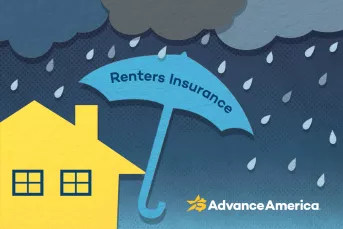
How to Prepare Financially for a Recession in 2025
What does a recession mean for the average household? And how do you prepare for a recession?
Recession definition
The term “recession” refers to a significant economic downturn lasting six months or more. During a recession, the affected country experiences a drop in the value of its goods and services. The price of commodities, such as gas and oil, may increase and unemployment may skyrocket.
Understanding the recession cycle can help you keep an eye on signs that one might be coming. And, more than that, it’s essential to know how to prepare for a recession so you can get through it.
What causes a recession?
Several factors contribute to recessions, but a loss of consumer and business confidence is the underlying component.
The other leading causes of a recession are rising fuel costs, plummeting housing prices, increased debt, higher interest rates, overproduction, and unemployment. These factors can reduce consumer demand, crash the real estate market, and devalue the dollar.
What happens during a recession?
At the start of a recession, the economy slows down. Consumers start to spend less, and the demand for goods and services decreases. As a result, businesses often resort to layoffs to cut costs, leaving people unemployed and scrambling for their next job.
During a recession, the stock market also takes a dive. Once stock values go down, investors lose money. And we’re not just talking about big corporate investors.
Anyone with a retirement plan tied to the stock market can lose a significant chunk of their retirement savings.
At some point, the Federal Reserve will raise interest rates to help combat inflation in a recession. Higher interest rates make loans and mortgages more expensive. Prices go up across the board and incomes remain stagnant until the economy starts to slowly recover.
How long do recessions last?
Since World War II, the average recession has lasted about 11 months, according to The National Bureau of Economic Research (NBER), which officially tracks recessions. The most notable post-World War II recession occurred between December 2007 and June 2009 — a timeframe now known as the Great Recession.
But recessions can also be short. For instance, the COVID-19 global recession, also known as the Great Lockdown, began in February 2020 and lasted for two months.
How long a recession lasts depends on the factors that started it. In general, however, you can expect an average recession to last from six to 18 months.
How a recession can affect your wallet
There are many ways a recession might affect you financially. For example, your employer might refuse to follow through with a planned promotion or raise. You may even experience a pay cut. At worst, you could be laid off. If you’re an independent contractor or gig worker, finding clients who can afford your services during a recession might be difficult.
Another way you could feel the effects of a recession are when it comes to household expenses. The cost of everything from gas to groceries may increase. And, as we saw during the Great Recession, those with adjustable-rate mortgages may experience skyrocketing interest rates that make their homes unaffordable. Renters may also experience increased housing costs as landlords try to keep up with inflation.
How to financially prepare for a recession
Recessions may be unavoidable, but you can take steps to financially prepare to weather the storm.
1. Determine your financial priorities
Evaluate your spending habits, living expenses, debt, and savings. Taking stock of your current finances can help you anticipate your needs over the next several months. It can also help you reduce unnecessary spending to focus on your financial priorities, such as paying your mortgage.
2. Create a budget
Creating a budget can help you stay on financial track, which is essential during a recession.
Sticking to a monthly budget is good practice regardless of the economic climate. A budget helps you identify bad spending habits and work toward long-term goals like saving for a mortgage down payment. You’re also more likely to contribute to your savings when you stick to a budget.
3. Build an emergency fund
Once you’ve established a monthly budget, start building up an emergency savings fund to prepare for a recession.
Since prices for goods and services go up during a recession, everyday essentials may start to exceed your monthly budget. As such, any savings you have available to fall back on will help cover these excess costs.
An emergency fund can also help bridge the financial gap if you’re laid off or experience a reduction in income due to the recession. Ideally, your emergency fund should amount to at least three to six months’ worth of living expenses.
4. Pay down your debt
Getting through a prolonged recession is more difficult when you have a lot of debt. The more debt you can pay off now, the better your chances are of making it through an uncertain economic climate.
Try to reduce your debt as much as possible before a recession hits. If you need help figuring out where to start, focus on paying down the debt with the highest interest rate. This is usually a credit card.
From there, you can work on reducing your remaining debts. The less debt you have going into a recession, the more money you’ll have to work with when times are tough.
5. Consider career opportunities
Some careers are more recession-proof than others. For example, healthcare workers, corrections officers, educators, and utility workers are more likely to remain employed during a recession because they provide essential services.
By contrast, manufacturing, construction, and management employees are more likely to experience job loss or a reduction in hours.
According to the Department of Labor, unemployment for those with bachelor’s degrees peaked at 5% during the Great Recession. That’s compared to 11% for individuals without a degree. Evaluate whether pursuing higher education or changing industries is the right option for you. Your career development decisions can significantly impact your ability to weather a recession.
6. Diversify your investments
You’ve heard the adage, “don’t put all your eggs in one basket.” While there’s never a guarantee when it comes to investing, putting your money in various markets can help protect you from financial losses caused by a recession.
Consider which sectors are more recession-proof than others. For example, people always need food and utilities — so investing in a beverage company, streaming service, internet provider, or electric company may be a sensible bet during an economic downturn.
In addition to stocks, consider bonds. Bond values can be low during recessions but often provide strong yields over time.
Notice: Information provided in this article is for informational purposes only. Consult your attorney or financial advisor about your financial circumstances.


